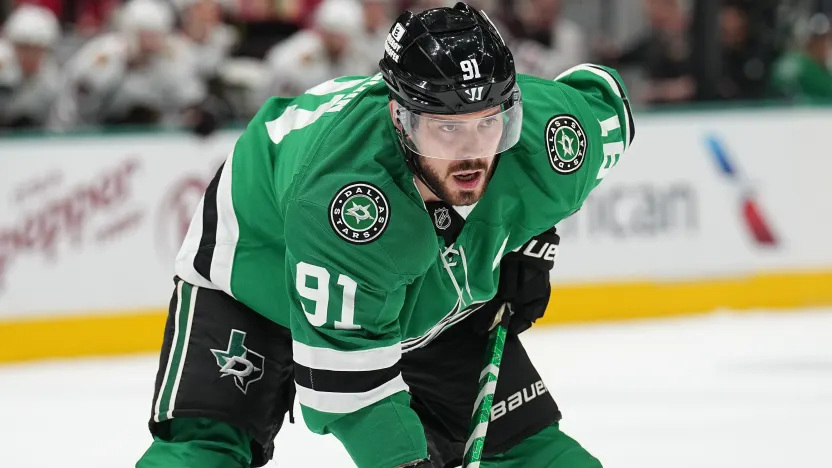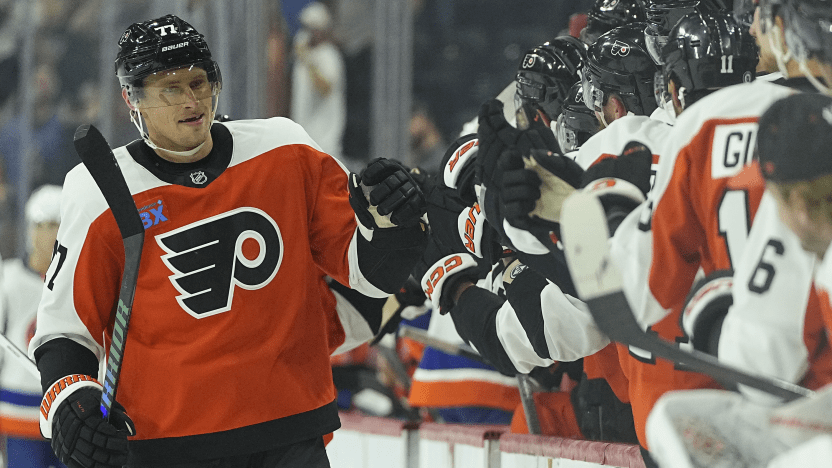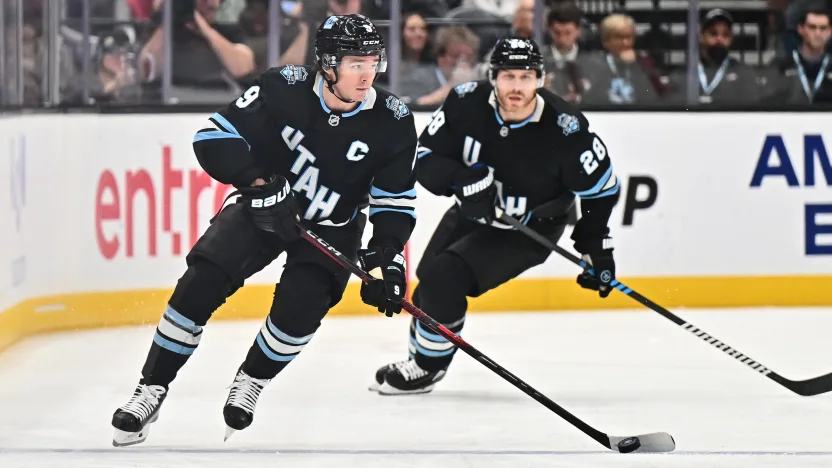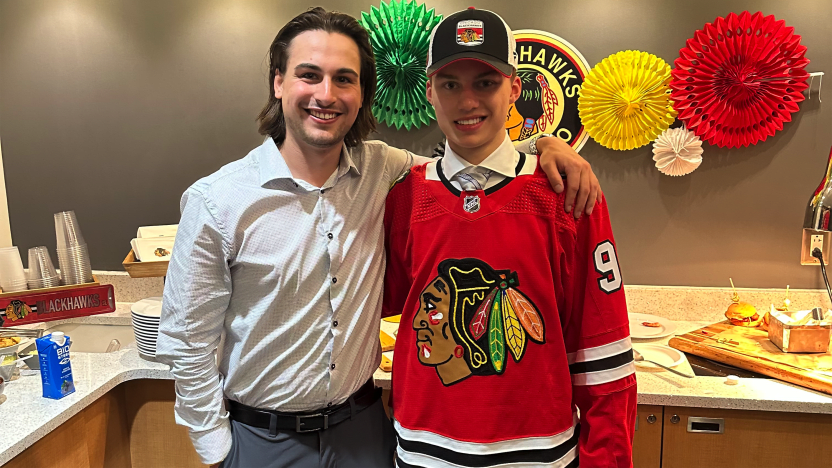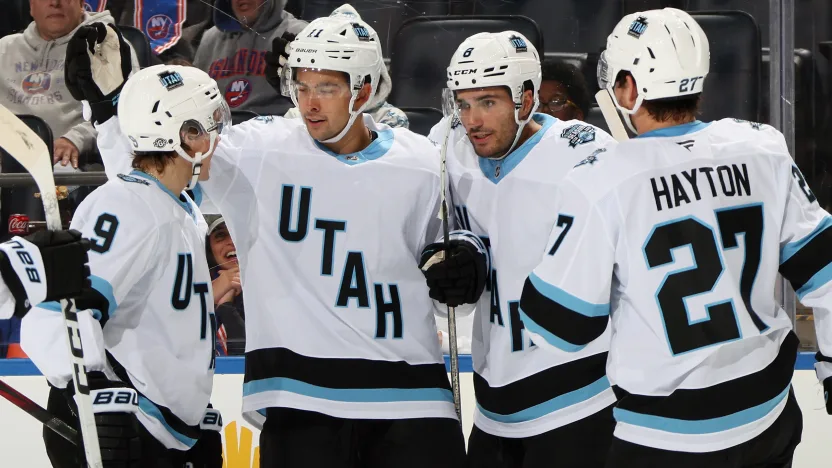BOSTON – Tyler Seguin remembers the first time he stared at a superstar on the ice. He was a young, wide-eyed rookie, watching Detroit Red Wings center Pavel Datsyuk during warmups. At first, the legendary presence seemed almost otherworldly, but with time, Seguin learned to recognize these athletes as just human beings, just like him.
“I realized that they’re guys who put on their pants the same way I do,” Seguin reflected. “It helped me build the confidence to believe that I belonged here, to start my own career and story.”
Over time, this mindset became crucial for Seguin as he faced off against the likes of Sidney Crosby and Alex Ovechkin. By visualizing himself succeeding in these matchups, he learned to stop being in awe of these stars and instead focus on his own game. This practice was key to building his inner confidence.
Seguin recently passed along this advice to Wyatt Johnston, a player who reminds him of his younger self – a highly touted rookie entering the NHL with massive potential. “I told him that sometimes, you just stare at these players and, once the game starts, it doesn’t matter anymore,” Johnston said.
The Tyler Seguin of today is far removed from the cocky young gun who won a Stanley Cup in his first season with the Boston Bruins. That version of Seguin was full of promise but needed to learn humility. He was traded to the Dallas Stars three years into his career, and in the years that followed, he matured into a leader—one with a wealth of experience and wisdom to share.
“I can see how far he’s come,” said Stars general manager Jim Nill. “He’s in a really good place now, at peace with himself.”
This transformation started over 15 years ago, when Seguin was just a teenager entering the NHL with the Bruins. He had the talent, but lacked an understanding of how to be part of a winning team. The turning point came early in his career when Hall of Famer Mark Recchi took him to task during his rookie season. After a game, Seguin was publicly scolded for not picking up his equipment. He was embarrassed but learned a valuable lesson.
“That moment was key. I never rolled my eyes again,” Seguin recalled. Recchi remembers it fondly, noting, “He was young, and sometimes, a little wake-up call was needed.”
Seguin acknowledges the arrogance that came with his youth but knows it was part of his growth. He has seen that same energy in younger players on the Stars, but he’s there to offer advice, guidance, and support—just as veterans once did for him.
Seguin is now on the cusp of 1,000 NHL games, and as he approaches this milestone, he reflects on his journey. Over the years, injuries and personal growth have reshaped his game and perspective. The pressure to be the offensive force he once was has diminished, and instead, Seguin has embraced a more well-rounded role that helps the Stars win games.
“It’s been a change for me,” Seguin said. “It’s no longer about being the go-to guy. Now, I’m focused on the depth of the team and playing a full, two-way game.”
Seguin’s transformation was driven in part by injuries, including a hip and knee issue that limited him to just three games in the 2020-21 season. After playing through a torn labrum to reach the 2020 Stanley Cup Final, Seguin had to adjust his expectations and style. Now, he’s a more responsible player, one who can still score but also impacts the game in other areas.
“He’s evolved,” said Nill. “Tyler was once a high-flying scorer, but now he plays all areas of the game. He understands that wins are more important than individual points.”
While Seguin is no longer the 40-goal scorer he was in his prime, he remains an integral part of the Stars’ success. On a line with Matt Duchene and Mason Marchment, Seguin’s 11 points (seven goals, four assists) so far this season show his continued value.
“Tyler’s found a way to contribute consistently,” said Rich Peverley, a former teammate of Seguin’s in both Boston and Dallas. “He’s not just a goal-scorer anymore. He’s a trusted two-way player.”
Seguin’s growth hasn’t just been in his playing style, but in his leadership. As the Stars adjust to life without Joe Pavelski, Seguin has taken on more of a guiding role, especially with the younger players. Coach Pete DeBoer has noted Seguin’s development as a leader, pointing out that his message resonates deeply with the younger guys because he’s walked the same path of maturation.
“His journey makes his leadership even more powerful,” DeBoer said. “He’s lived both sides, and now, he’s the guy others turn to.”
At 32, Seguin is embracing a new chapter in life, both on and off the ice. Married, about to become a father, and fully grounded in his career, Seguin feels more content and at peace with himself. He no longer takes the game for granted.
“I’ve realized that this crazy thing called hockey is going to come to an end one day, and it’s all about enjoying it while it lasts,” Seguin reflected. “I’m proud of what I’ve achieved, but I still have more to give, and I’m excited for what’s next.”
As he prepares to face his former team in Boston, Seguin can’t help but acknowledge how far he has come since those early, brash days in the league. He may not be the cocky kid he once was, but he’s proud of his evolution.
“I have no regrets,” Seguin said. “This journey has been the best thing that’s ever happened to me, and Dallas is where I’m meant to be.”




